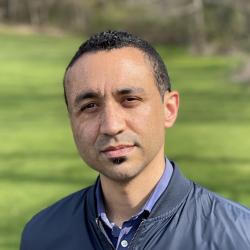Brian Michael Murphy is a media archaeologist and writer whose work cuts across disciplines and genres. He is Visiting Assistant Professor of American Studies at Williams College and a Faculty Associate at the Berkman Klein Center for Internet & Society at Harvard University. His book We the Dead: Preserving Data at the End of the World (University of North Carolina Press, 2022), explores Americans’ obsession with preserving increasingly vast amounts of data in all formats, from paper to microfilm, to digital files and information written in synthetic DNA. His writing has appeared in the Wall Street Journal, Kenyon Review, Lapham’s Quarterly, Narrative, and in Italian translation in Ácoma, among other places. He co-edited a special issue of Media-N on the “Afterlives of Data,” and previously served as Managing and Nonfiction Editor at Northwest Review. A Fulbright Scholar (Italy), his work has also received support from the National Endowment for the Humanities, the Vermont Arts Council, and the Ohio Arts Council. His recent publications include an essay on the digitization of lynching imagery in the edited volume The Expanded Field of Conservation (Clark Art Institute/Yale University Press, 2023), and a short story as liner notes for Spectacular Diagnostics’ album Ancient Methods, commissioned by Amsterdam-based label Rucksack Records. He earned a Ph.D. in Comparative Studies from The Ohio State University, where he was a Presidential Fellow, and went on to teach at Miami University, and Bennington College, where he also served as Dean of the College. He is a former Director of the Kenyon Review Young Writers Workshop, where he taught for several summers, and is a founding board member at Outpost—a residency in southern Vermont for writers of color from the United States and Latin America. He is currently writing a work of fiction that grapples with the complexities of racialization, ghosts, and the ways that digital technologies blur the boundaries between past and present, life and death, and our biological bodies and data bodies.
